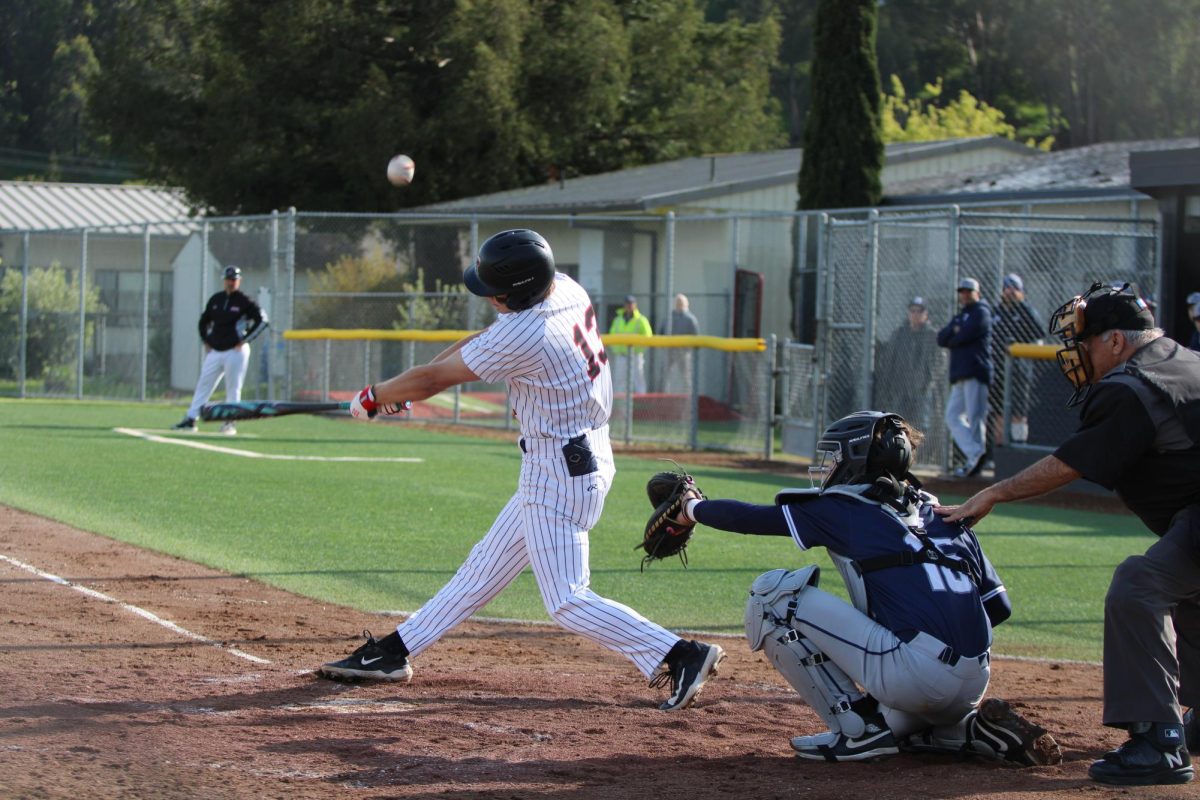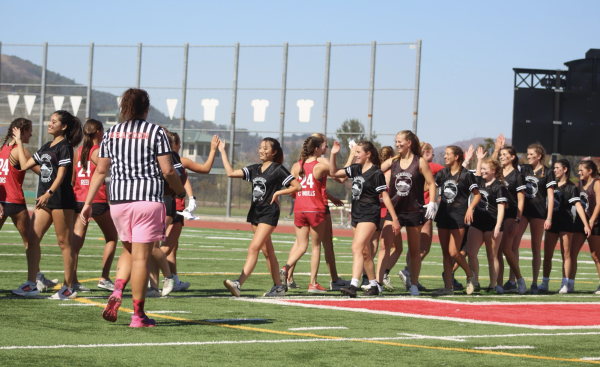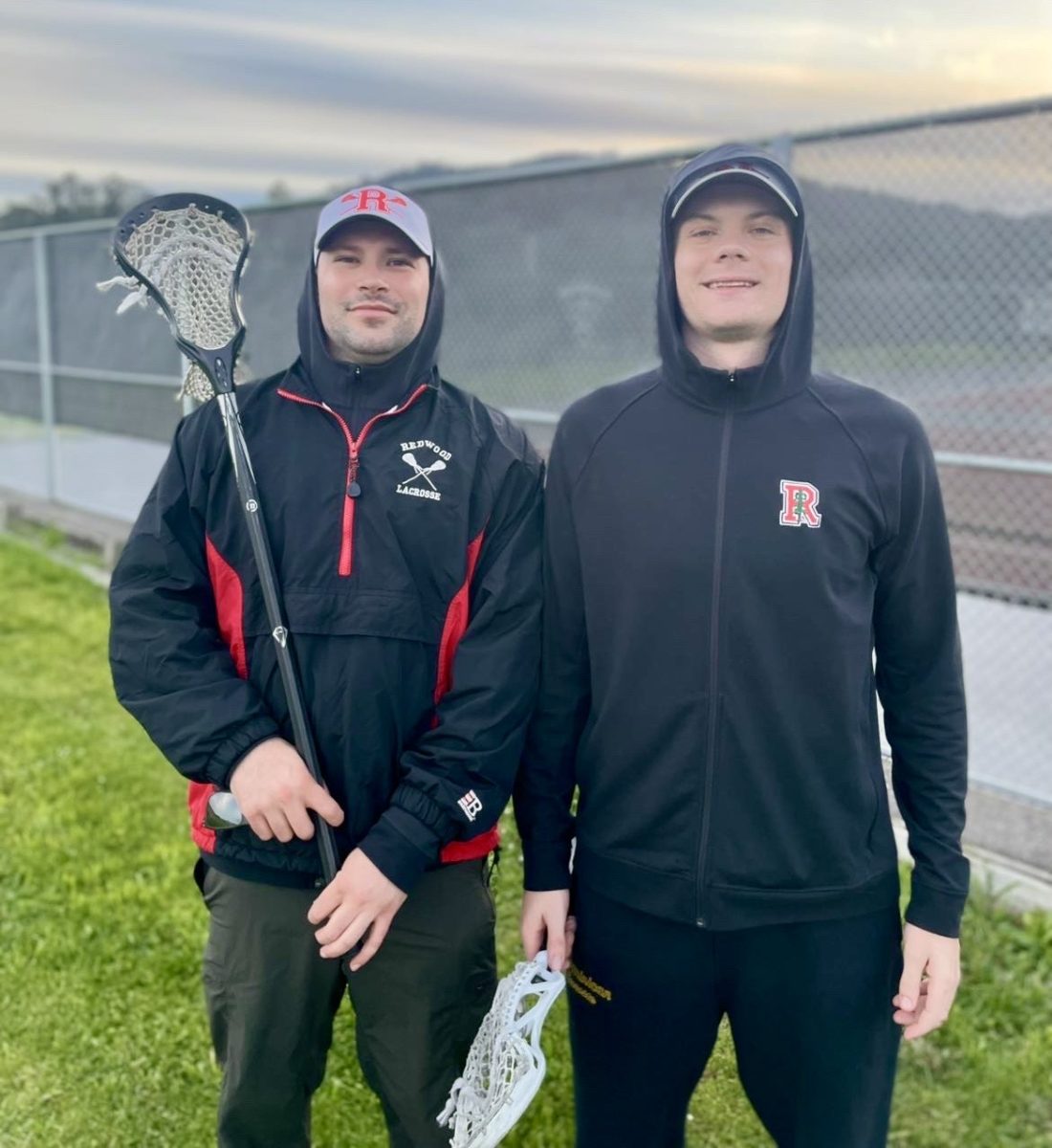This story is part of a two-piece special done on crew. Make sure to check out the other story, about the role of a coxswain.
Two eggs in the morning. Rice and chicken in the afternoon. For dinner, a salad – no dressing. Such was the diet of coxswain Riley Overfield, adopted to keep his 6’0” frame as close as possible to the minimum weight for men’s coxswains – 120 pounds.
But now, after coxswaining Marin Rowers to victory at the U.S. Youth National Championships and being invited to cox at the World Rowing Junior Championships in Belgium this summer, Overfield, junior, is back to square one as a rower.
“It was really hard to keep the weight down, so I was like, ‘Okay I’ll keep it up until I can’t anymore, and then I’ll switch,’” Overfield said.
He was prepared to make that switch at the end of his sophomore year, but could not resist an invitation to coxswain for the junior national prioritized eight-man boat that summer.
“Throughout the summer I was eating so little on a daily basis,” Overfield said. “I was at like 130 pounds, so when it got to race time I had to cut back, cut back, cut back even more. I got down to 123 pounds, and then after that I was like ‘I’m done.’ I just couldn’t anymore. I was afraid of seriously stunting my growth or something.”
Though he was careful to watch out for symptoms of malnutrition, looking back at the summer Overfield recognizes he exhibited some of the warning signs, particularly memory loss, which can result from a deficiency of protein and nutrients.
“I was trying to keep track of everything that was going into my body to make sure I had enough, but it was scary.” Overfield said. “It’s not a complete blackout, but I most definitely feel like my memory over the summer especially is much spottier than it has been for previous times in my life.”
On the other end of the spectrum is senior Yodai Yasunaga, who rowed his freshman year until he decided to step into the coxswain’s seat, where he remains today.
Dieting played a role in Yasunaga’s decision to switch roles as well, though Yasunaga’s case bears little resemblance to Overfield’s.
“In my case, when I rowed my freshman year I was actually lighter than my coxswain, so I was like, ‘There’s something wrong here,’” Yasunaga said. “I was told to gain weight because I was so little, but that was really hard for me. It came to a point for me where I was trying to force myself to eat, but I just couldn’t. I couldn’t enjoy eating anymore.”
In fact, no matter how many protein shakes Yasunaga consumed, he only managed to lose weight. This, he said, combined with his despisal of ergs, contributed to his decision to switch to coxswaining.
According to Overfield, self-motivation was the driving force behind him going to such great lengths to keep a low weight – not a coach’s pushing.
At the international level, a few extra pounds on a boat may make or break a race. According to Overfield, an extra five pounds is estimated to add .2 seconds to a 2k time and that although this may not seem like much, it can equate to nearly three meters in a race – easily the difference between winning and losing.
“At Nationals I got down to 123, and I was like I can do that again,” Overfield said. “It was me being like ‘I said I can do it, I know I can,’ and that was that.”
Overfield has excelled more quickly than novice rowers, and now has a seat on the 3V boat. Overfield attributes much of his fast advancement to the skills and knowledge of rowing he picked up as a coxswain.
“My view of the sport is the same. Before I started, everyone was like, ‘It’s going to be way harder, you’re not expecting how hard it’s going to be,’” Overfield said. “I guess they warmed me to the idea of what it really was, but it’s not like I have a different view of the sport, like it’s so much harder. Especially being at that level, I saw the rowers pushing themselves to the limit they did. I knew what I was getting into.”
Yasunaga said that transitioning to coxswaining during his sophomore year forced him to grow not only as an athlete, but as a person as well.
“It takes a lot of adjustment. When I used to row, I could be silent. Even if we were having a boat discussion, not all the rowers would have to speak,” Yasunaga said. “I was always the one who remained mostly silent. So being in that position where you’re required to always be vocal and share your opinions – it’s a lot different.”
Yasunaga said that after being inspired by the coxswain who led his novice boat, he wanted to improve his own leadership skills.
“I was also interested in coxswaining because being a coxswain requires a lot of leadership and being vocal and getting the group together, which is not something I was comfortable with or that was something I would typically do,” Yasunaga said. “I wanted to challenge myself.”
If given the choice, both Overfield and Yasunaga said they would choose to be coxswains over rowers.







